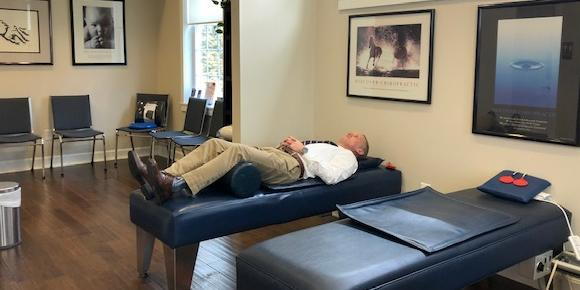Sleep Debt, a New Epidemic

- posted: Feb. 28, 2020
Sleep Debt, a New Epidemic
Proper sleep is essential when it comes to maintaining proper function of your body, and your overall health and mental well-being are a direct reflection of your daily sleep habits. Just think, we spend roughly 1/3 of our entire lives asleep.
Most people are taught that they should get eight hours of restful sleep every night, but for whatever reasons, most of us tend to get a lot less than that. Many of us don't really know what being truly “rested” feels like and live out our lives in a sort of “sleep debt.” While sleep requirements may vary from person to person, most healthy adults need an average of 7 to 9 hours of sleep per night to function at their best. However, according to a national pole, about 40% of Americans get less than seven hours of sleep per sleep. This means that almost HALF of us are not getting enough sleep.
The amount of sleep recommended for younger children/adults is even greater. Typically, children need an average of 9 to 12 hours, while teenagers need 8 to 10 hours of sleep every 24 hours. Not surprisingly, these age groups are also guilty of missing out on their needed sleep. The average teenager will only sleep between 7 and 7 ¼ hours.
So, what happens when we don’t get enough sleep? Some general side effects of poor sleeping habits can include impaired cognitive ability, poor productivity at home/work, and (obviously) just feeling plain TIRED. There are also more serious problems that are associated with sleep deprivation, including high blood pressure, diabetes, heart problems, obesity and depression.
Getting A More Restful Sleep
It’s no secret that sleep is important, and many of us are aware that we may not be getting enough of it, so now the question is… how does one begin to improve their sleeping habits today?
You can start with a few simple steps to improve healthy sleep patterns; stick to a sleep schedule (even on weekends,) practice relaxing before bed, exercise daily, and limit caffeine/energy drinks, especially before bed. It can also be helpful to make sure you are sleeping in a relaxing environment that promotes sleep. Evaluate your bedroom to ensure ideal temperature, sound and light, sleep on a comfortable and supportive mattress and pillow, and turn off all electronics prior to going bed.
Another way to track your sleep is by using Sleep Analysis Technology (ex. Fitbit, OURA, Motive, Apple, Emfit, Withings). I personally use the Oura system, which allows me to track the number of hours I sleep, how many times I got up, my deep REM VS light sleep, and my resting heart rate. Also, the OURA gives me a sleep score based on all these factors, and that gives me a true reading of how well I slept through the night.
It can be hard to break or change certain habits, and our sleeping habits are no exception. Make the transition to better sleep easier by determining the best time for you to go to sleep based on your daily activities/lifestyle, then set a sleep schedule and stick to it. Eventually these changes will become routine, and you’ll quickly notice a BIG change in how you feel when you wake up every morning!


